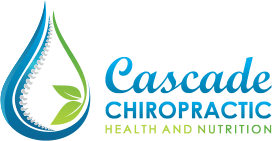When I see patients in my office, I have them complete a questionnaire, you may have filled one out yourself. My favorite part is the section where the patient tells me their top 5 health concerns. I look for connections there, I look for the underlying cause, and perhaps even the reason that particular patient can’t get well, yet.
Inevitably, one or more of the top 5 health concerns has to do with digestion. These might look like: “I have…”
- Indigestion and heartburn
- Burping after meals
- Gas and/or bloating
- Constipation and/or diarrhea
- Skin rashes
- Fatty liver
- Diabetes
- Hypoglycemia
- Taking antacids either prescription or over the counter
When someone presents with one or more of these symptoms, there are many approaches that we could take and each patient is an individual, so individual recommendations are given. No two people have the same protocol, but I’ve included some of the gut issues and their underlying causes below. If you have one or more of these issues, you may need a gut protocol.
If a patient presents with indigestion or heartburn generally digestion needs to be supported with enzymes. They need to make sure they are not drinking too much liquid during mealtime as that might dilute digestive enzymes. They need to not be drinking alkaline water as it changes the pH of the gut which should be acidic. And lastly, they need to be finished eating 2 ½ to 3 hours prior to going to bed. Sometimes enzymes need to be taken with each meal to support the digestive system that can be compromised by many things.
If antacids have been taken, we can assume they have not been digesting properly for at least a little while. Since the pH of the healthy stomach ranges between 1 and 2, anything above that may result in poor digestion of proteins and less than amazing absorption of minerals. Taking antacids can alter the pH to a more alkaline state of between 5 and 10. When that happens, we risk poor mineral uptake that can result in anemia, osteoporosis or osteopenia, muscle cramping, anemia and more.
If a patient is burping after meals can be an indicator that your gallbladder and /or liver may need some support. The gallbladder is responsible for storing and concentrating bile and digesting fats you consume. Fats broken down to fatty acids are utilized by the body for energy production, hormones, and new cell wall formation.
A patient with gas and bloating can be simple or complex. It can be as easy as taking out antacids and upregulating digestive enzymes, or as complex as SIBO (small intestine bacterial overgrowth). There is also a possibility of an overgrowth of bad bacteria, an example might be candida.
Constipation can be a case of dehydration. People need to drink half their body weight in ounces of water every day. So for example, if you weigh 150 lbs, you need 75 ounces of water per day as water or tea. It can also be a serious need for fiber, in the form of a vegetable deficiency. Most of us do not get the recommended 25 – 30 grams of fiber per day. Fiber gives bulk to the stool as well as attracts trash to it for removal from the colon and it also feeds the good bacteria in the gut. On a lab test, dehydration may look like “the 3 highs”, as I call it. Elevated red blood cell count, elevated hemoglobin and elevated hematocrit. If you see this pattern, ask yourself if you are drinking enough water.
Diarrhea is often due either to a food sensitivity or a gut that lacks proper balance.
When a patient comes in with one of the above issues I often like to review labs to get a better picture of what is going on inside them. Things I look at are:
- Serum Protein
- Serum Calcium
- Total Iron
- Mean Corpuscular Volume (MCV)
- ALT
- AST
- Alkaline Phosphatase
- B12
- Lipid Panel
- HgA1C
When these and other labs are outside a functional range, which may be narrower than the lab range, (since we want the body functioning optimally at all times) we need to pay attention to upper digestion which ultimately affects bone, muscle, hormone, and immune system.
Once we determine whether or not you have normal lab values, we can go about supporting or fixing the underlying problem. Digestion is one of the most important functions the body performs. We must eat, and many of us simply do not break down our food efficiently. Efficient digestion also helps in the protection of our body from toxic substances that might otherwise be absorbed through a leaky gut lining. When toxins are absorbed, they can play a part in compromising our immune system. We need a strong immune system now more than ever! So as part of the ongoing process of restoring and regaining health, remember digestion is an essential part of that!
While I do create customized protocols for my patients based on their specific symptoms and needs, something I almost always include are enzymes. When looking to add enzymes however, there are a lot of different options. Do you need support digesting protein? Fat? Carbohydrates? All of the above? There are also enzymes with probiotics in them and subtle enzymes that do very little, like papaya (for those who just need a little nudge once in a while). If you’re wondering if you need digestive support, give us a call and ask for a quick System Survey form that we can email to you. I will be happy to do a phone consult or in person appointment to review your options with you!
Remember you are what you eat, so eat clean!
You can schedule an appointment with Dr. Virginia by calling 916-844-2800!

